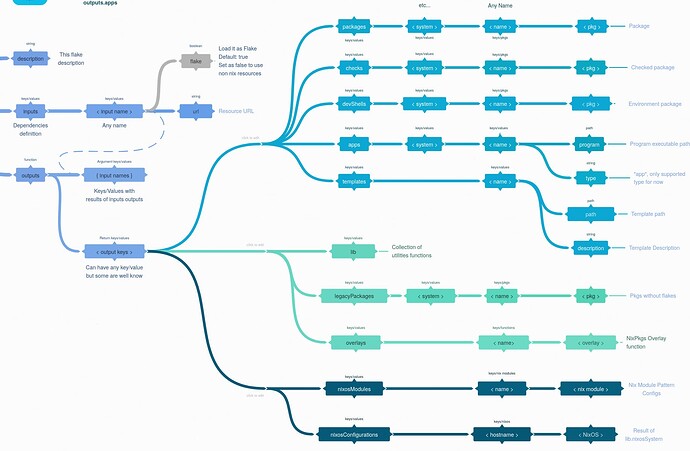I do not have the answers but some maybe useful references.
- NixNG: A lighter and simpler “NixOS”
- SrvOS: NixOS for server (maybe smaller defaults)
- impermanence: ephemeral storage
Less-hackish is a subjective topic.
But you could make your kiosk a flake lib, with a flake template, and a flake commando to build.
Examples:
-
Genix7000 example of flake to run command, no git clone

- DevShellFiles example of flake template usage.
- DveShellFile Template example of using a lib from a flake (DevShellFiles).
That means you could configure nix run github:Avunu/web_kiosk to run nix flake new -t github:Avunu/web_kiosk my-kiosk and user flake to be just an import and kiosko.mk ./env.nix, that also expose the package to nix build.
